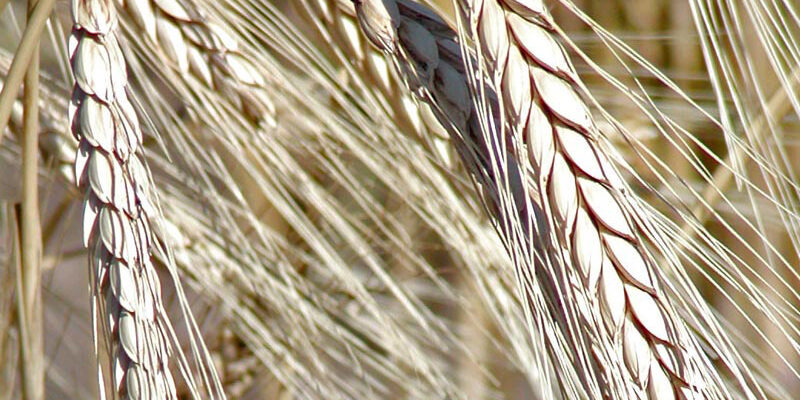Saving the Harvest
Stu Henry is a Movement Builder with MNIPL, the leader of the Climate Justice Minyan at Shir Tikvah Congregation, and a volunteer with MN350. The following was given as D’Var Torah (sermon) at the Sukkot service, a holiday which celebrates the Jews wandering in the desert after the Exodus. His passion is to create a stronger Jewish voice for Climate Justice in Minnesota.
In the Torah, God commands us to observe, on a specific date, a holiday to honor our land and the bounty it gives us. This week’s Torah portion illuminates the agricultural roots of Sukkot, and Adonai’s command to keep this holiday from generation to generation. The parsha reads:
“Mark, on the fifteenth day of the seventh month, when you have gathered in the yield of the land, you shall celebrate the festival of the Lord to last seven days: a complete rest on the first day and a complete rest on the eighth day.
On the first day, you shall take the fruit of the hadar tree, branches of palm trees, boughs of leafy trees, and willows of the brook…
You shall observe it in the seventh month as a law for all time. “
This command to observe Sukkot is rich with meaning given our rapidly changing climate. It is unlikely that there would even be Sukkot, not to mention agriculture and human civilization, were it not for a specific combination of chemicals in our atmosphere. During the last ice age, there were 180 pounds of carbon for each million pounds of air (this is referred to as 180 parts per million). Gradually, the amount of carbon increased until it reached 280 parts per million about 10,000 years ago. This rise in carbon increased global temperatures to the point where humans suddenly began to cultivate crops. We believe agriculture developed first in China, and then independently in other parts of the world.
With agriculture came permanent settlement. People began to erect monuments and buildings. They built roads and bridges, and created written languages, and laws to govern increasingly concentrated populations. Mathematics, engineering, philosophy, musical theory, libraries, colleges and universities, all were developed in our pre-industrial civilization. Whether you are reading the words of the Talmud or the words of Thomas Jefferson, you are reading the words of people living when the atmospheric concentration of carbon was 280 parts per million.
Unfortunately, in the last two centuries, we have raised the amount of carbon in the atmosphere from 280 parts per million to 400 parts per million (and rising), primarily by burning fossil fuels. There is more carbon in the atmosphere now than there has been for at least 800,000 years. Human beings have never lived in a world with this much carbon in the atmosphere.
While some will cling to the belief that the summer of 2017 was an aberration, the calamities we have endured over the past several months are part of longer trends predicted by climate models. Record high temperatures lead to record wildfires, record droughts, and warming oceans capable of producing huge storms dumping record-breaking amounts of rain. A tragically ironic statement was repeated over and over again after hurricane Harvey:” We could never have predicted a flood like this.” Really? I am afraid many climate scientists would disagree. And as devastating as US storms have been, most recently in Puerto Rico and the Virgin Islands, the human costs have been much greater in South Asia, where flooding affected 40 million mostly poor and brown-skinned people, and led to over 1200 deaths. This autumn perhaps we should remember that the homes of tens of millions of people provide little more protection from the heat and the water than do our flimsy sukkahs.
The present is scary, but the future is terrifying. Due to the pace at which gas molecules collide in the atmosphere, there is roughly a thirty year lag from when carbon is released to when it affects the climate. The destructive weather we saw this year is due to carbon emitted through the 1980’s, which means we have yet to even see the effects of the carbon released over the past three decades. Even in the best future scenarios, flooding, droughts, and fires will get worse. Major cities in this country, Miami, Phoenix, are likely to become uninhabitable in the next 30 to 80 years. And millions of displaced farmers will pour out of Southern Africa and South Asia by the second half of this century.
Facing these calamities in the very near future, we need to ask what does L’dor Vador, from generation to generation, actually mean. We Jews have celebrated Sukkot since the time of the first temple, for well over a hundred generations. How many future generations will enjoy autumn nights relaxing in their sukkas? Is L’dor Vador, from generation to generation, just a pretty song, or is it a call to act on behalf of our children, our children’s children, and all the generations to come?
If you believe it is a call to action, the next step is obvious. We may not be able to the stop the damage from all the carbon we have already put in the atmosphere, but we can stop compounding the problem. We need to stop burning fossil fuels. While this idea seemed like ivory tower crazy talk even a decade ago, today a carbonless energy future is within reach. Wind and solar energy are as cheap as coal. Car makers have announced transitions to all electric and hybrid fleets. China is the largest producer of solar energy, and India is likely to overtake the US for the number two spot. Corporations like Google and Apple require states to provide renewable energy when competing for new data centers and local offices. Cities are installing solar street lights. Millions and millions of dollars are being spent on tackling new technologies, like energy storage, a critical technical component required for an all renewables future.
What is our role as Jews, as members of Shir Tikvah, in bringing forward a just and carbonless energy future, especially when we are already committed to other issues, in particular racial justice and sanctuary?
First, we need to recognize that climate justice, racial justice, and immigrant justice are intertwined. In the United States, a history of segregation and discrimination means that people of color are more likely to live in flood prone areas, and hot zones, and don’t have the financial resources to recover from the health issues and property losses brought about by climate change. Due to rising sea levels, there are streets today in Miami that regularly flood at high tide. In poorer neighborhoods the ocean rises through the limestone and mixes with waste from septic tanks and industrial sites, covering streets and lawns with smelly, toxic water. Soon these neighborhood properties will be worthless. And while courageously fight for the rights of immigrants and refugees here in the US, we must not forget that people fleeing climate change are not even considered refugees, and therefore are not eligible for refugee protections.
The second thing we Jews need to do is increase our actions as individuals and consumers by signing up for community solar gardens, buying electric vehicles (used ones are quite reasonably priced), taking mass transportation, riding bikes, eating less meat (when possible), and so on. I have contemplated a simple consumer action, in which individuals go to different car dealerships and ask to see their electric cars. If they do not have any, and many dealers do not, the individual says, “That is too bad, I am only interested in electric cars,” and walks out.
Finally, we as Jews need to take stronger actions to change the systems perpetuating the carbon economy. Truly, our silence on climate change is deafening. I have been on the big marches; I know who is trying to organize a climate movement in the Jewish world. There are certainly groups of committed people in parts of the country, and our different movements (Reform, Conservative, Reconstruction, and Renewal) have urged action. But compared to the great causes in the past and present where Jews have been so effective, and given the urgency and enormity of the climate crisis, it’s as if we are whispering our message. And our full voice is so crucial, rooted as it is in social justice, Tikun Olam (healing the world), and perhaps most importantly, L’dor Vador.
Right now we need to bring whatever voice we do have to the halls of power. My good friend and mentor, Julie Frost Nerbonne is here with us tonight. Julia is Executive Director of Minnesota Interfaith Power and Light, a faith based coalition fighting for climate justice. This fall MNIPL is organizing over a hundred congregations across Minnesota to meet with decision makers. We are one of those congregations. In early November, we will meet with Minnesota State Senator, Scott Dibble, the senator for this district, and a member of several committees dealing with energy, transportation, and the environment. I am inviting everyone in the congregation to join us for a one hour meeting, here at the synagogue, to show that we support effective and just climate policy. Contact me at stuhabitat18@gmail.com, if you want more information, or are interested in planning the meeting.
One of the great tasks ahead of us is to create a movement to last generations. The profound moral challenges posed by climate change will not be resolved in a single legislative session or even eight years of a future progressive presidency. In the coming decades, we will be faced with enormously difficult questions that will demand urgent action, over and over again. How will we build a movement that lasts?
Our holiday Sukkot offers a model. Coming exactly six months after Passover, which celebrates the Exodus from Egypt, Sukkot celebrates the forty years of wandering it took for us Jews to become truly liberated. Rabbi Morris Greenberg writes, “Sukkot expresses the deeper Exodus – the reflective, gritty days of marching during which a new generation grew up. Freedom came as the end result of pitching tents (booths) and taking them down over the course of 14,600 days.” As we face a future of climate change, we can take strength from our ancestors, who have journeyed over many lands, over many generations. I look forward to making this journey with all of you.
Thank you and thank you to the Rabbis for having me speak tonight.
Shabbat Shalom
Jewish Terms you may not know:
Sukkot is a holiday, which celebrates the Jews wandering in the desert after the Exodus. I also speak about its agricultural roots as well.
A sukka is sort of like a tent that we set up during Sukkot.
L’Dor Vador means from Generation to Generation and it is a very common phrase and song in our services
Tikun Olam means heal the world.


